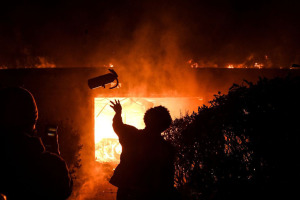Vermont punishing high schoolers who attended religious schools

“Faith, academic excellence, service, and community.”
These are the “four pillars” that support Rice Memorial High School, one of the best high schools in the state of Vermont. These pillars anchor the topflight academics and athletics that make Rice a great option for Burlington-area families.
But the state has turned one of those pillars into a stumbling block for several families who hope to send their kids to Rice. Care to guess which one?
Vermont maintains a Town Tuition Program, which provides a tuition benefit for students who live in towns without public schools. Towns that provide tuition for their students instead of maintaining a public high school are called “sending towns,” and they provide families with the full amount of their student’s tuition, up to the town’s approved tuition rate.
It’s a dream scenario for parents, who can use the benefit to send their kids to whichever school they believe is the best fit for them.
At least it would be, if the opportunity was being applied fairly.
As it turns out, students who wish to attend public or secular private schools have no problem obtaining tuition benefits. Students who wish to attend religious private high schools, however, are being excluded. That includes Rice Memorial High School, a ministry of the Roman Catholic Diocese of Burlington.
Set aside for a moment the fact that Rice students scored better than average for the state of Vermont on their SATs and ACTs. Or that 90 percent of Rice students go directly to four-year colleges like Dartmouth, the University of Southern California, and Clemson University. Or the fact that Rice is one of only two high schools in the state to offer the prestigious AP Capstone Diploma, as a reward for a rigorous course load that offers 14 honors, and 12 advance placement classes. Rice’s 11:1 student-teacher ratio helps students meet and excel with this challenging curriculum.
If you’re a Vermont parent, that’s already probably too good to ignore. But beyond academics, Rice focuses on forming students as whole persons—even Vermont’s governor has recognized Rice students’ public service and sense of citizenship. Add in the fact that tuition is $5,000-$6,000 less than most other private and public schools, and you have a hard-to-beat choice.
But according to the State of Vermont, Rice is not an option – simply because it is a religious school.
To combat that clear and unconstitutional prejudice, Alliance Defending Freedom has filed a lawsuit against the school district and the state Agency of Education on behalf of four Vermont families and the Diocese of Burlington.
And we did so, packing heavy precedent.
Similar circumstances arose in 2013, over a policy that also excluded participation by religious groups. Trinity Lutheran Church in Columbia, Missouri submitted an application for a state grant to replace their preschool’s playground surface with safer materials. The preschool’s qualifications led to their being ranked fifth out of the 44 requests received – but they were denied, anyway.
The reason? The preschool was operated by a church.
Trinity’s case went all the way to the U.S Supreme Court, whose 2017 opinion was abundantly clear:
“[T]he exclusion of Trinity Lutheran from a public benefit for which it is otherwise qualified, solely because it is a church, is odious to our Constitution… and cannot stand.”
The song remained the same when the state of Montana sought to deny a state tax credit for donations that helped students and families afford secular and religious private schools in Espinoza v. Montana Department of Revenue. In its opinion, the High Court “condemn[ed] discrimination against religious schools and the families whose children attend them.”
And now, although the U.S. Court of Appeals for the 2nd Circuit has agreed that families who want to send their children to religious schools should have equal access to the same public benefits that everyone else enjoys, Vermont’s discrimination appears to be continuing.
Schools like Rice are now being asked to fill out certification forms meant to determine exactly how much of their programming is “religious.” The government is asking them to compartmentalize their faith or to establish a litany of extra procedures in order to somehow stop tuition benefits from supporting anything religious in nature.
Multiple Supreme Court rulings have shown that denying equal access to public benefits is unconstitutional. That much is clear.
But if “faith, academic excellence, service, and community” are the elements that are helping Rice students excel, perhaps Vermont should consider strengthening those pillars, rather than trying to tear them down.
Paul Schmitt serves as legal counsel with Alliance Defending Freedom



























